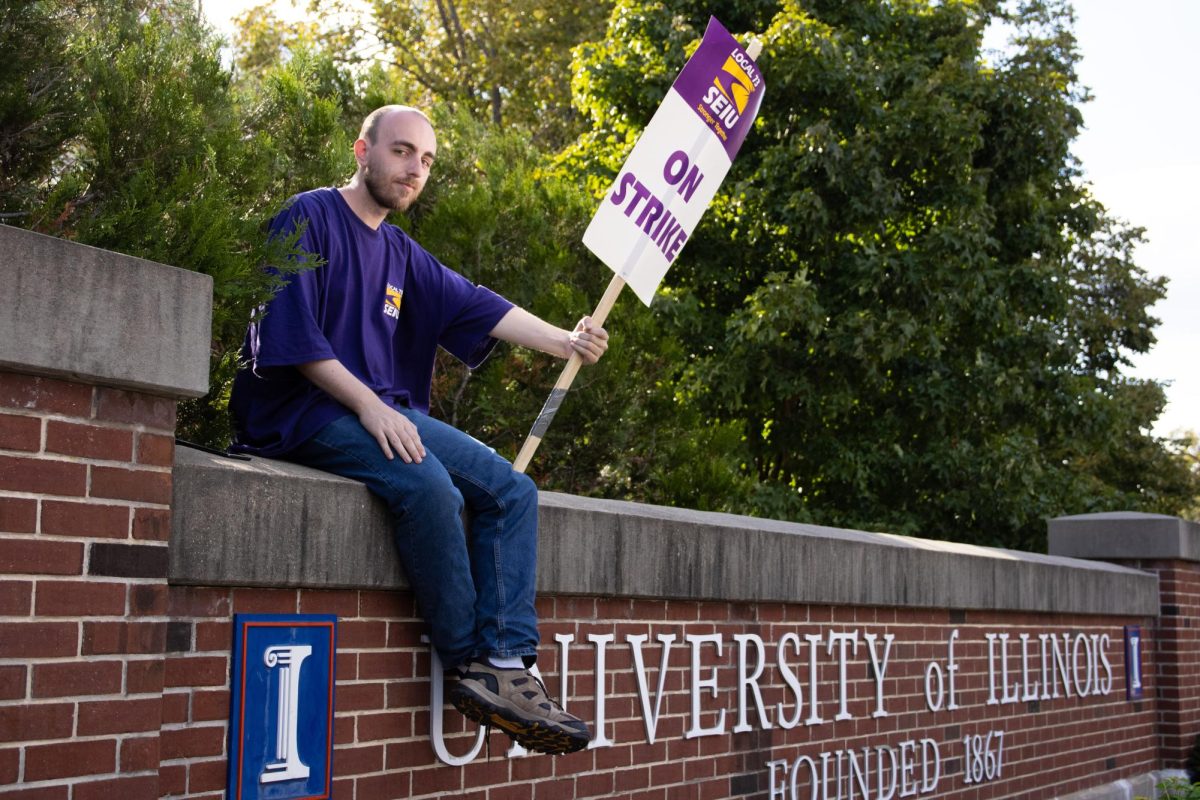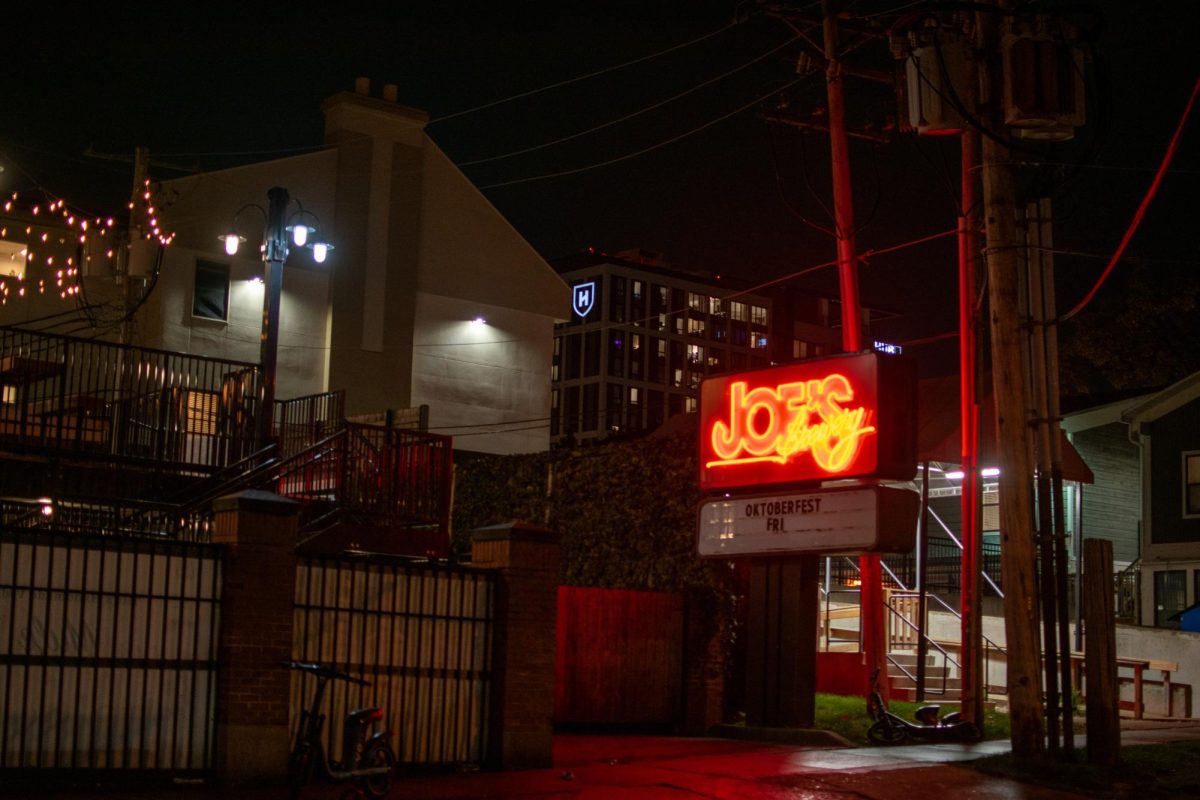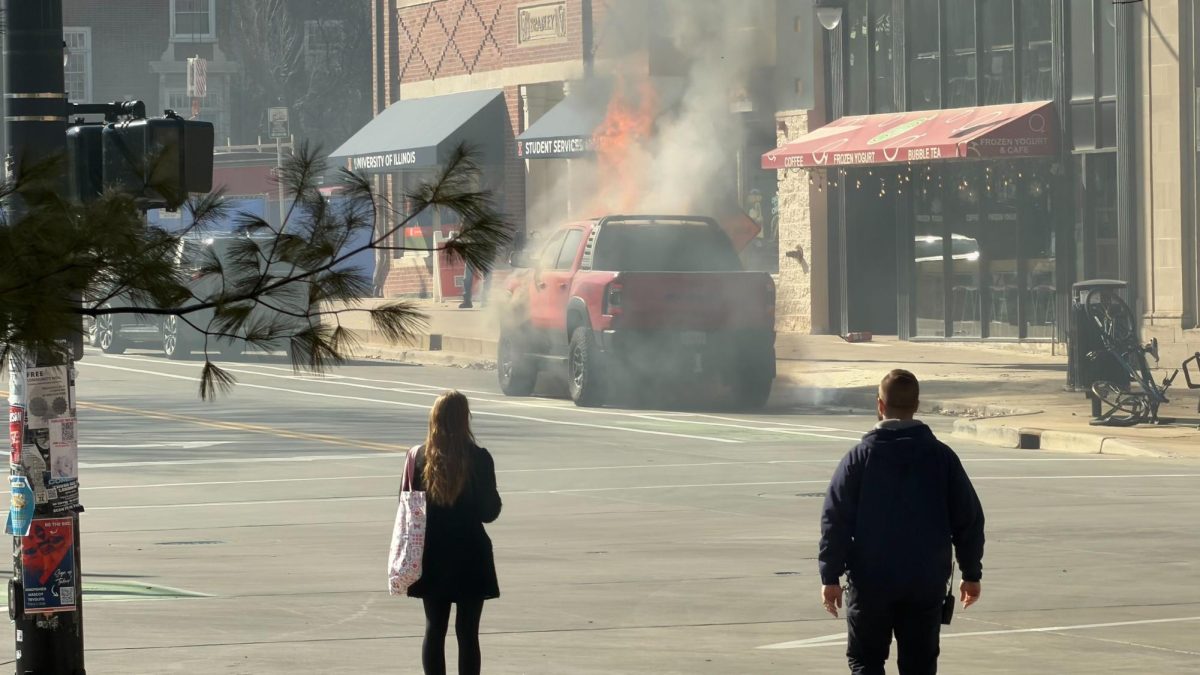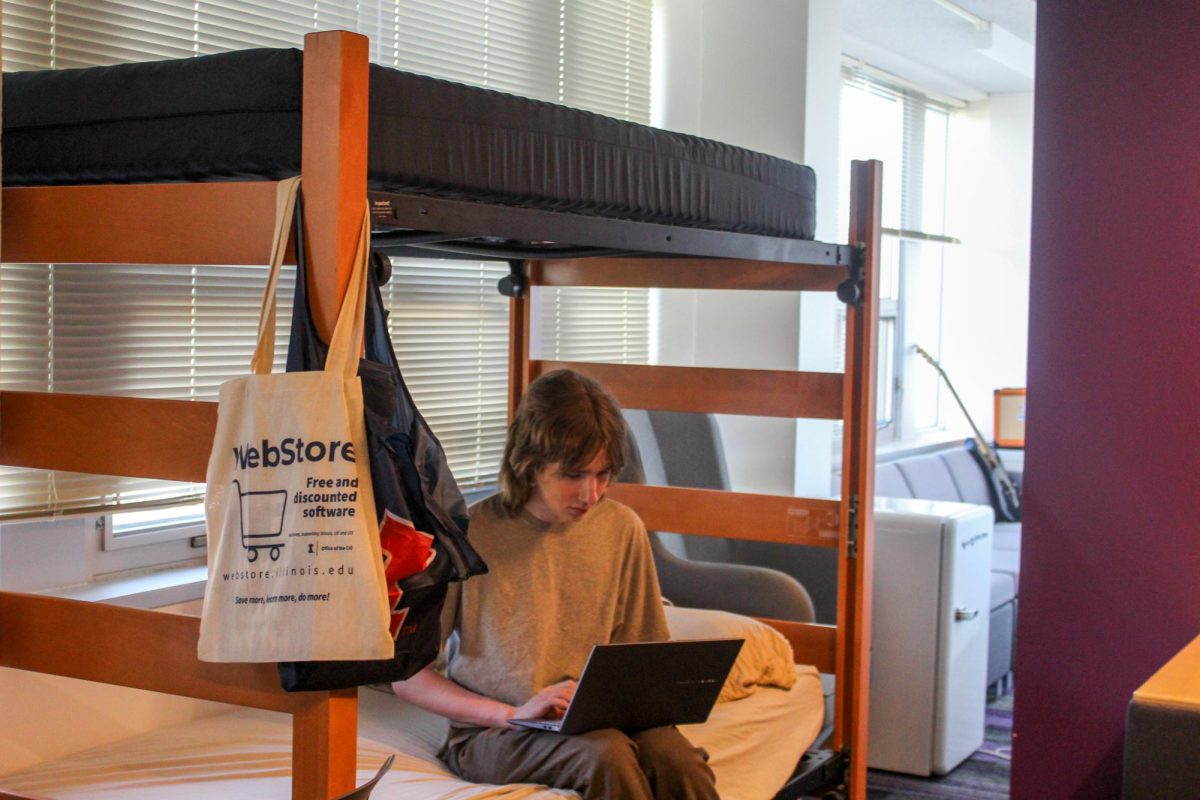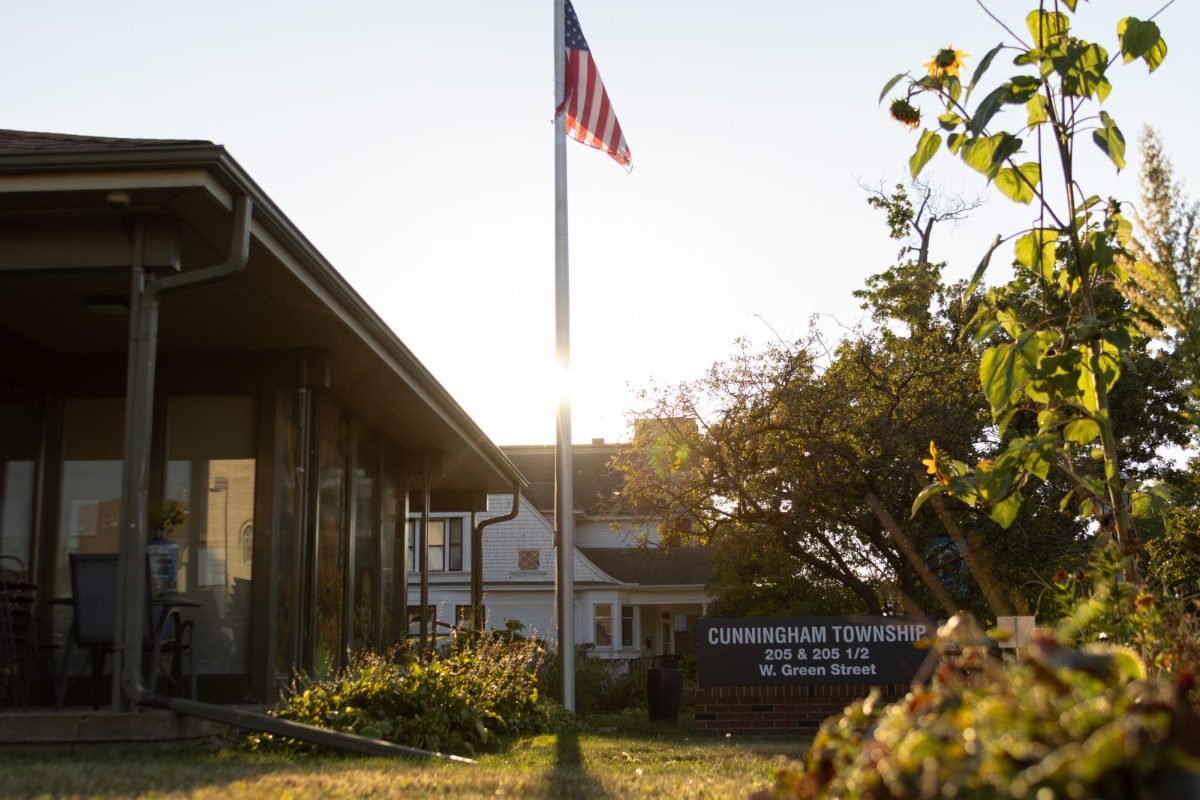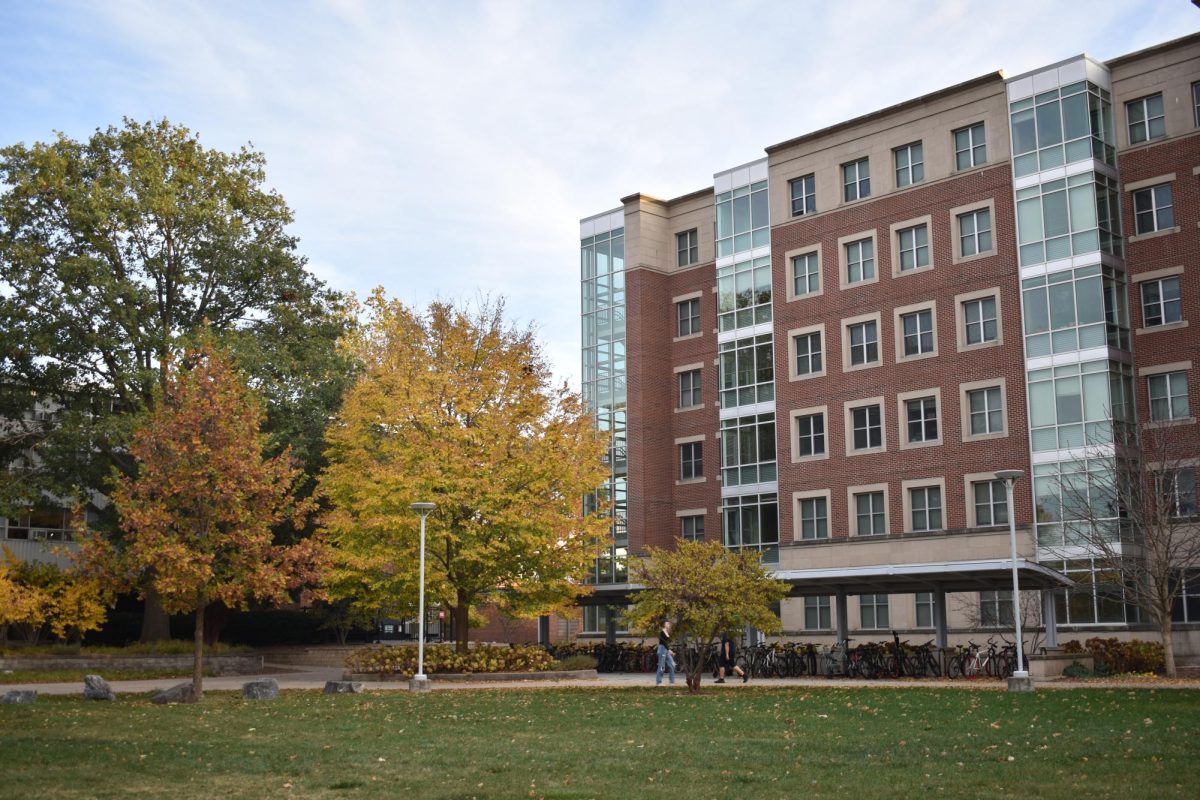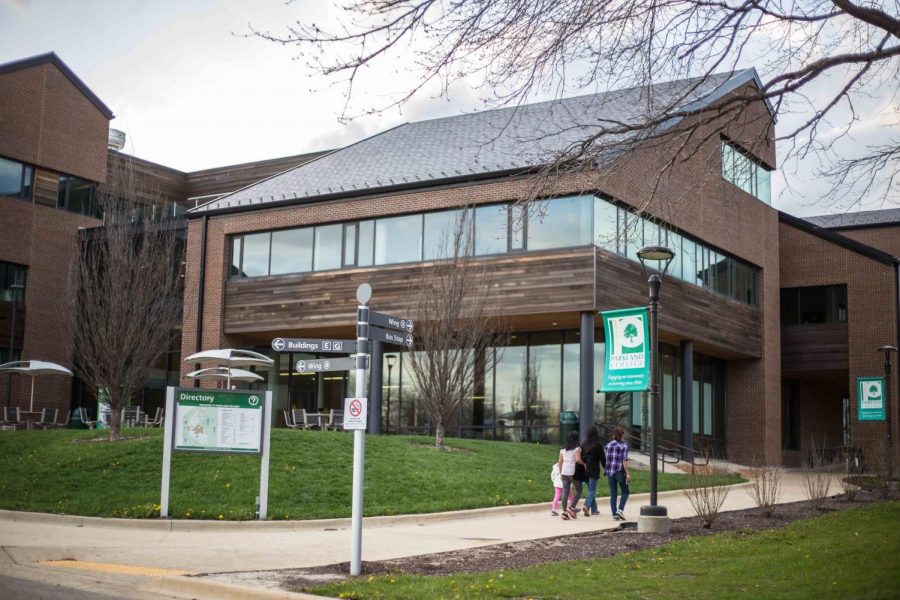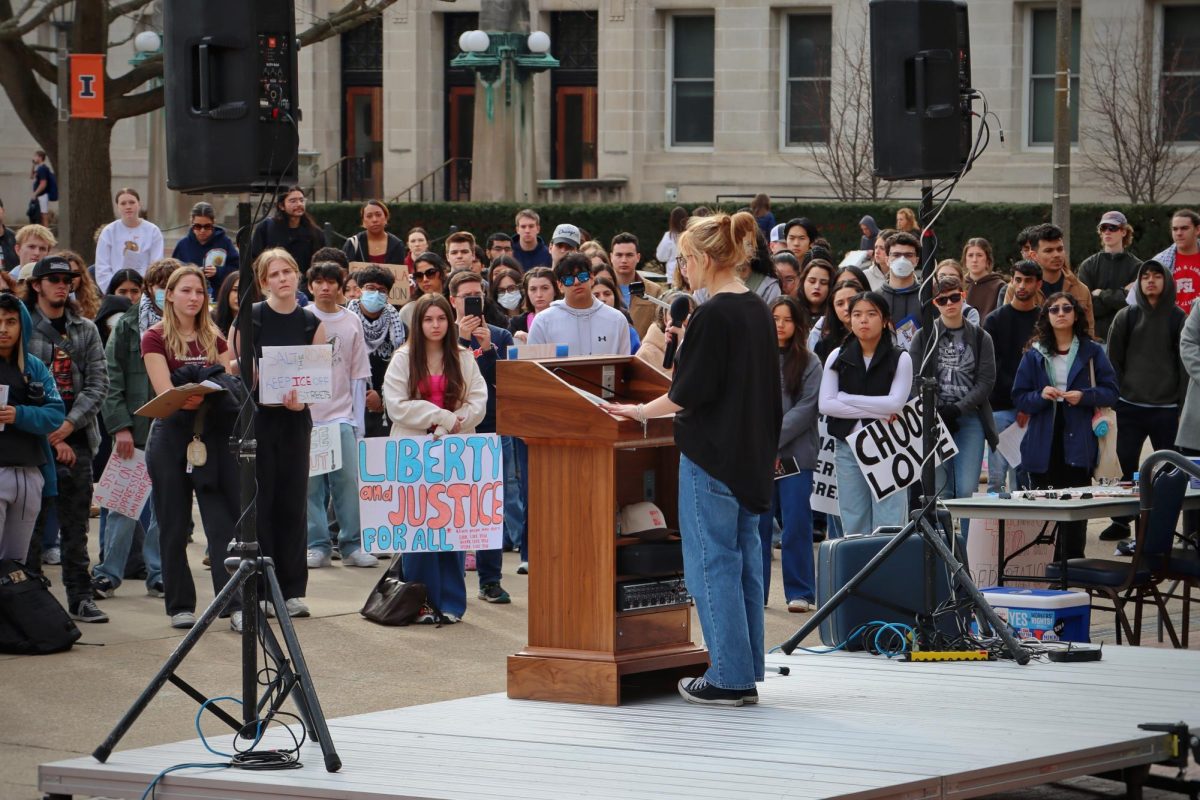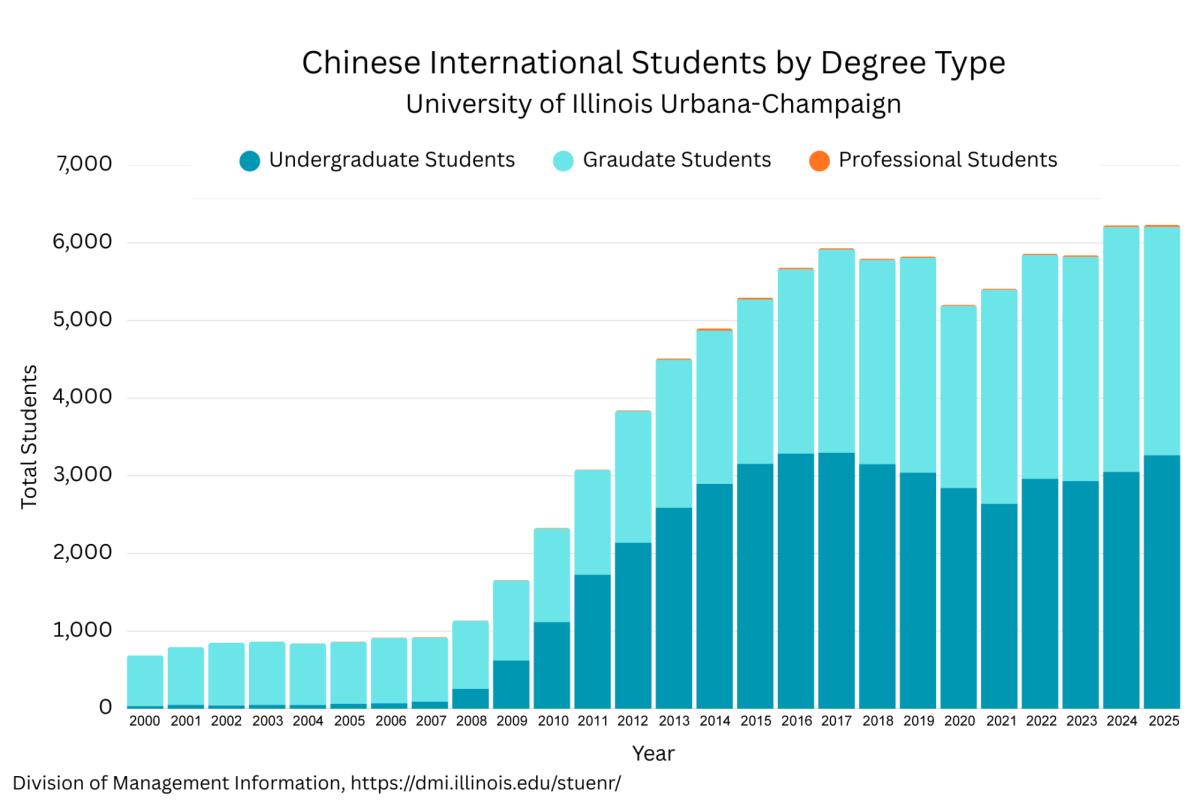Last updated on April 10, 2025 at 11:47 a.m.
As the University welcomed its largest-ever freshman class of 9,008 into a dorm shortage, the building and food service workers’ strike stretched the campus labor force even thinner.
“UIUC students have reported long lines at the dining hall, moldy bread and undercooked chicken nuggets, dirty bathrooms and trash piling up across campus,” said SEIU communications director Eric Bailey.
Almost 800 workers went on strike, leading to the shutdowns of LAR dining hall, Terabyte at ISR’s hot food service, Field of Greens at LAR and Corner Cafe at FAR. Willard Airport and University gyms also lost workers to the strike.
“They have overbooked this school by thousands and this affects us,” said SEIU Chapter 119 President Melody Decker at a Sept. 13 rally. “People work between two or three venues to serve these children.”
Get The Daily Illini in your inbox!
The strikers were composed of two distinct but closely related workforces within the University — Building Service Workers and Food Service Workers.
SEIU Labor Organizer Ricky Baldwin added BSWs are subject to clean fecal matter, blood and urine daily.
“They discover dead bodies, sometimes of students they have gotten to know,” Baldwin said. “They find miscarried fetuses.”
Negotiations for a new contract for BSWs and FSWs began in January over various grievances, including wages — a legally mandated bargaining topic.
Baldwin said topics such as minimizing lost wages from unemployment and cleaning up the encampment were settled last spring.
However, once wages were brought up, Baldwin said negotiations began to break down.
Although student workers will see a $1 raise to $15 due to wage compression this January, the University “somehow forgot about wage compression for us,” Baldwin said.
When the BSW and FSW contracts finally expired in August, a compromise was still nowhere to be seen. Negotiations throughout September continued to yield no new contract, and SEIU ultimately made the move to strike on the morning of Monday, Sept. 23.
Picketers spread themselves across almost every dining hall on campus, wielding signs and chanting for higher pay. The Iron Workers Union froze construction on Illini Union in support, and a GoFundMe supporting strikers reached $26,728 out of its $30,000 goal by the strike’s end.
Travis Huynh, junior in LAS, said he rallied alongside the strikers from the very beginning. To him, siding with the workers who “build the stability of University life” was the best path to restoring campus services.
“Everything I do at this University relies on the labor of these people,” Huynh said during a rally at Anniversary Plaza. “They are the ones who built the buildings, sweep the floors and make our food; the services that they provide (are) what keeps us active students.”
Under their proposed three-year contract, strikers hoped to achieve a one-dollar yearly wage increase for BSWs and FSWs and a signing bonus for all workers. Specific figures and demands from the University and SEIU fluctuated from meeting to meeting in attempts to reach a compromise.
“This really is bigger than any individual person,” said Promise Aziaka, a BSW of one year. “We’re doing things that are going to help improve the quality of life across the board, not just for the workers here; those things are going to translate and have ripple effects throughout the entire University.”
During the union’s three-day 2013 strike, student workers were among those who were told to take on additional duties along with their original jobs.
Baldwin said the University attempted to make up for the labor shortage this year by contacting clerical workers represented by the American Federation of State, County and Municipal Employees Local 3700, a union representing clerical and administrative staff on campus.
Baldwin said this posed a safety concern as these workers are not trained to handle food.
AFSCME President Ursulla Idleman said they resisted the University’s order as a violation of the health and safety section of their contract.
This order was “to the detriment of worker safety, the student body and our union siblings in SEIU,” Idleman said.
“To my knowledge, University Housing has not hired anyone additional to cover strike work,” said Chris Axtman-Barker, associate director of communications and marketing at University Housing. “I know that some residents have talked about wait times in the dining halls, and that’s much more reflective of the amount of residents we have than it is about the strike.”
Instead, the University relied on volunteer shifts from housing administrative staff to keep services running.
Volunteers worked a total of 405 shifts across campus dining halls. Shift time and length varied greatly, which depended on the availability given by volunteers.
The record-breaking student body only aggravated the conditions of the dining halls amidst the strike, which caused longer lines and a lack of food options for many students.
Tserendorj Batjargal, sophomore in LAS, said the closing of Terrabyte’s hot food bar was “absolutely detrimental” to his schedule and wallet.
To accommodate his tight class schedule, Batjargal bought the All Dining Dollars meal plan, the most expensive plan University Housing has to offer — but when services that accept dining dollars closed down due to the strike, eating out became his only option.
“I had to go out and spend more money, even though my meal plan should have already covered it,” Batjargal said. “The University had it coming, but unfortunately (the strike) didn’t affect the University’s bottom line as much as it did the students who already paid their money.”
Housing and sanitation staff, however, went mostly undisturbed by the strike. Except for students with private bathrooms, housing, janitorial and volunteer staff continued to clean public areas.
Axtman-Barker said the University had already braced for the greater workload, predictable from this year’s unmatched student body, and they increased their staff numbers in preparation.
On Thursday, Oct. 3, the University and SEIU reached an agreement on the new three-year contract for BSWs and FSWs. A combination of the University’s original offer and the union’s counteroffer resulted in a $2.75 total wage increase after three years and a $500 signing bonus.
According to Chapter 119 President and BSW Melody Decker, the workers would have ended up with a 54-cent raise had the workers not gone on strike.
All FSWs were previously laid off and ineligible for unemployment benefits during the summer. The new agreement will allow select FSWs to work over the summer.
“This hard-fought victory doesn’t end here,” said Dian Palmer, SEIU Local 73 president, in a press release. “Leadership of the $8 billion University of Illinois System continually fails to prioritize the workers who keep the universities clean, safe and functioning.”



